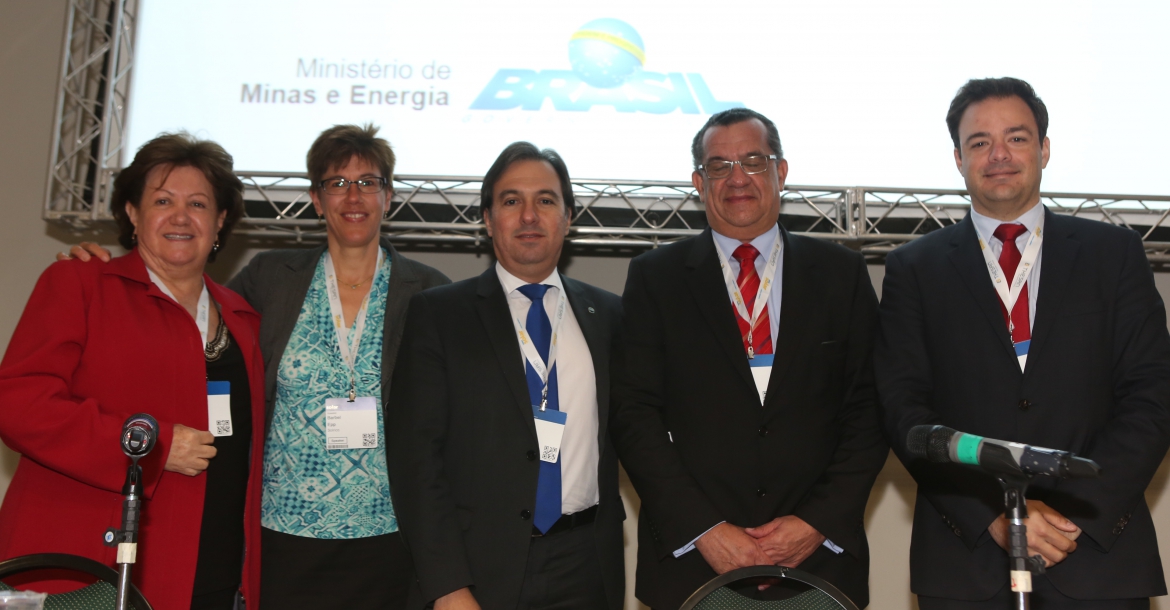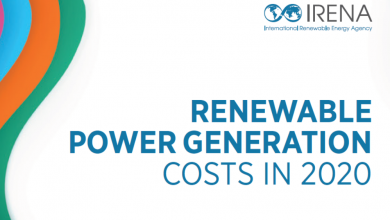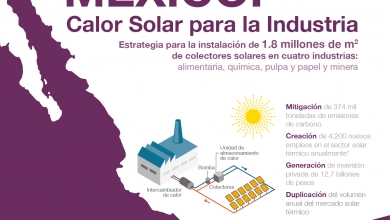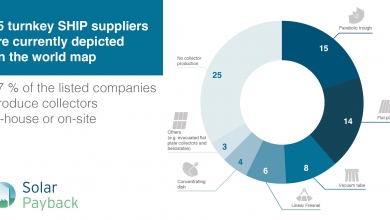State Secretary of Energy Ministry in Brazil Sees Great SHIP Potential

The Brazilian Solar Thermal Energy Association – ABRASOL, in partnership with the German company Solar Promotion International and the Brazilian company Aranda Eventos, organized a high-level stakeholder conference during Intersolar South America in São Paulo on August 23.
The opening speech on the Strategic Importance of Solar Thermal in Brazil came from Eduardo Azevedo (third from left), State Secretary of Energy Planning and Development at the Brazilian Ministry of Mines and Energy, MME. He underlined the importance of replacing electric shower heads with solar water heaters to increase efficiency. But also emphasized the big potential of solar heat technology use in mining and food production in Brazil. Bärbel Epp from the Solar Payback partner solrico from Germany (second from left) presented the global trends and business opportunities in SHIP during the opening session.
The session chair Elizabeth Duarte Pereira (left) from the UNA University Centre in Belo Horizonte in the state of Minas Gerai s lauded the state secretary as an “enthusiastic solar thermal supporter.” The photo also shows Abrasol´s President, Amauricio Gomes Lúcio also CEO of the solar water heater manufacturer Tuma (fourth from left) and Rafael Campos, Board Member of Abrasol and Sales Manager of Bosch Thermotechnik in Brazil (on the right).
“SHIP is a fast-growing sector around the globe” reported Epp from solrico. “The number of industrial solar heat plants quadrupled from 120 in 2012 to over 500 in 2016”. Most systems have been installed in the food and beverage industry, at plant and machinery manufacturers and in the textile sector. The largest SHIP installation, a 27.5 MW solar field measuring 39,300 m2 of collector area has been providing heat for electrolytic refining at a Chilean copper mine for three years.
Professor Pereira sees great potential for SHIP technologies in Pernambuco’s fruit processing industry which produced 308,000 tons of fruits in 2015. “Eighty-five per cent of the mangoes exported by Brazil are cultivated along the São Francisco river in the south of the state,” she explained. “Post-harvest, the produce is immersed in 55 °C water for 5 minutes, with 0.055 % fungicide and 0.1 % fruit cleaner added.” The hydrothermal treatment of all fruit also includes a bath of up to 90 minutes in 46.1 °C water, an easy-to-achieve low-temperature application for solar.



